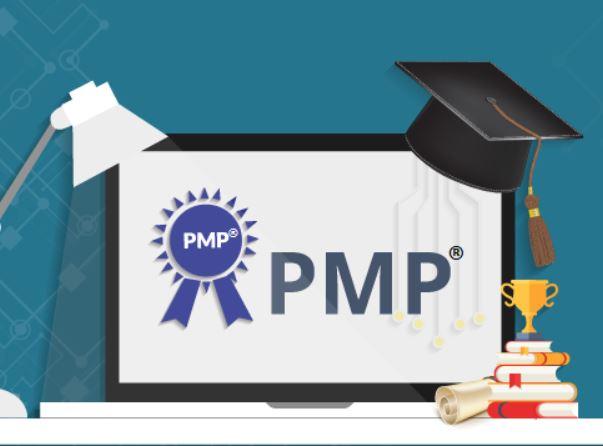
Tips and Strategies For Passing the PMP® Exam
We are all aware that preparing for an exam takes a significant amount of effort, time, and devotion. The Project Management Professional (PMP®) test is more difficult than most, necessitating substantial study over several months in order to pass. One must first fulfill the experience and educational criteria to become a certified Project Management Professional, after which one must pass the 200 multiple-choice questions PMP® test. In the field of project management, there is a significant amount of information to learn, and you will need to be able to grasp the practical applications of that knowledge. People who have successfully passed the exam can tell you that using just one study technique is insufficient.
Hence, we’ll talk about the ideal strategies that applicants use to ace the PMP® test in this article.
👉 Relocate to Canada Today!
Live, Study and Work in Canada. No Payment is Required! Hurry Now click here to Apply >> Immigrate to CanadaWhat is the PMP® Certification Exam?
The Project Management Professional (PMP) certification is a widely accepted project management credential that evaluates a candidate’s ability to handle the people, procedures, and business goals of a professional project. You must fulfill the experience criteria and pass a certification exam in order to receive the certification. Here are some essential details regarding the certification.
The PMP® exam consists of 200 questions in total. Your understanding of the many facets of project management will be evaluated by the way these questions are structured. It evaluates your managerial and leadership style as well as your analytical, quantitative, and logical abilities. Following are the many types of questions that are presented:
- ITTO based questions
- Knowledge-based questions
- Definition based questions
- Formula-based questions
- Situation based questions
- Professional and social responsibility-based questions
- Interpretational questions
Who Can Take Up the PMP® Certification?
The value of the PMP® Certification comes from the dedication required to obtain it. Depending on one’s academic background and professional experience, one may be eligible for the PMP® certification. There is also a requirement for practical projects as part of the PMP certificate training because the certification covers both theoretical and practical. Make sure you satisfy one of the following sets of prerequisites for PMP® Certification before you apply:
- Second-level education degree.
- Project management experience of 60 months OR 7,500 hours of overseeing and managing projects.
- 35 hours of project management training.
Alternatively, if the applicant has a four-year bachelor’s degree:
- 36 months of project management experience OR 4,500 hours of managing and directing projects.
- 35 hours of project management training.
Alternatively, if the applicant has a graduate or master’s degree:
- Experience in project management for 24 months.
- 35 hours of training in project management.
What Is the Best Way to Study For the PMP® Exam?
Although A Guide to the Project Management Body of Knowledge (PMBOK® Guide) is not primarily used as the basis for the PMP® exam, it is a key resource for exam preparation. It serves as the cornerstone of best practices for project management and provides an illustration of the complexity and scope of the subject matter. So, before everything else, read, research, and comprehend the PMBOK® Guide.
Although it serves as the cornerstone and foundation for the exam, the PMBOK® Guide cannot be used as a template to pass the test, which relies on the application of the concepts found in the guide and other reference materials to actual project conditions. Learn about “PMP Brain Dump” with the aid of the internet. For the best outcomes, practice regularly.
There are numerous ways to get ready, but one of the best is joining your neighborhood Project Management Institute group. These groups are full of people who are eager to share their knowledge and expertise on how to prepare for the PMP® exam and pass. In addition, there are a tonne of published literature and online sources that offer extremely valuable perceptions and advice on how to pass.
👉 Relocate to Canada Today!
Live, Study and Work in Canada. No Payment is Required! Hurry Now click here to Apply >> Immigrate to Canada
Tips & Tricks to Clear PMP® Exam
For the PMP® test, the majority of applicants devote a lot of time in preparations. You must therefore make sure to buy yourself time solely for preparation. Here are some pointers to help you pass the PMP exam:
- Take a PMP® Prep Course
If you’d like to learn in a classroom setting or want more one-on-one engagement, PMP exam preparation courses are a fantastic option. This will also be the ideal way to prepare for the PMP test online is to enroll in a training course on the subject since it will provide you access to study materials and guidance. Another advantage of these courses is that they often satisfy the 35 contact hours minimum required in order to take the PMP® exam.
- Study the PMBOK® Guide
PMBOK Guide is a major source of inspiration for the PMP exam. The PMBOK® Guide should always be used as a study guide, regardless of the preparation tool or resource you use. Every week, set aside time to study one of this Guide’s knowledge areas. Additionally, divide up the PMBOK Guide’s knowledge areas into individual processes to study daily. Use the most recent edition of the PMBOK® Guide, which PMI releases, to fully comprehend all of the knowledge domains, procedures, ideas, and formulae related to becoming a PMP. Additionally, you will need to keep up with any new developments in project management that have occurred since the previous iteration.
- Get Your Hands on the PMP® Handbook
You must need an excellent PMP® textbook. You’ll need to dedicate a lot of time and effort to studying for the exam, which could take up a lot of your time. There are many complex questions and answers on the PMP® certification exam that test your knowledge and your capacity to apply what you have learned to challenge real-life settings. Your PMP® exam preparation will go more smoothly if you have good study materials.
- Remember Flashcards
Flashcards, whether printed or digital, are a practical, affordable, and time-tested way to prepare for the PMP® exam. Flashcards that may be downloaded can be printed or flipped through on a computer or smartphone. Make a flash card whenever you see a new formula, an unfamiliar idea, or an uncommon phrase. You can review these flashcards whenever you have free time during the day that is not scheduled and to help you remember what you have recently studied.
- Become a PMI Member & Member of your local PMI Chapter.
There are several benefits to joining PMI before taking the exam. First, if you are a PMI member, the exam fee is less expensive. Second, PMI creates numerous opportunities for networking with numerous other project management experts. Keeping up with the most recent advancements in the industry is crucial because the PMP® exam is dynamic in nature. Connecting with other project managers is the best way to go about it. Additionally, there are regional PMI Chapters where you may network with others, have the opportunity to share expertise, and interact with individuals.
- Participate in Study Groups & Discussion Forums
Creating study groups is always beneficial when getting ready for an exam. If you can’t find a study group, try starting one. Studying alone might become boring, but studying with others will keep you engaged. You may considerably cut down on the amount of time needed to prepare for the test by becoming an active member of study groups and discussion forums. You can also assist others in passing the exam while getting your own questions and concerns answered. The biggest benefit of creating study groups is that you and your peers will have a set schedule or routine for studying that will become a regular part of your daily routine.
- Check Out PMP Exam Sample Questions
The majority of PMP® exam questions are situational. Thus, being able to apply a theory in settings is not always implied by simply reading about it. Sample papers are an excellent way to get ready for any exam because they let you know how well-prepared you are and whether any weak areas require serious last-minute revision. When you take lots of PMP® sample tests, you’ll also become more effective when taking the real test. It will assist you in developing sound time management skills. Sample questions can be found online or offline from a variety of sources. Prior to selecting a source, be sure to conduct research on the content’s caliber and the source’s reputation.
- Take Advantage of Online PMP Exam Simulators
Online practice tests for the PMP are provided by PMP simulators. Utilizing the PMP® Exam Simulator to practice the questions is yet another advised strategy for getting ready for your PMP® certification exam. They put the candidate through a test with questions that mimic the format of the PMP exam. They also try to simulate exam conditions so that you can get used to the timing and pressure. Three modes are available on this website for you to complete your practice test:
- Real Exam Mode – To simply put, you get a realistic PMP® exam experience.
- Timed Mode – Even though you have a certain amount of time, this option exposes you to tips and solutions.
- Learning Mode – You get hints and solutions without a time limit in this mode.
Exam Simulator is available without charge for three days. You are ready to attempt the PMP® certification exam if you can correctly answer 85% or more of the practice or sample questions on your first attempt.
What Is the Ideal PMP® Exam Prep Time?
You must consider time as the most important factor while creating your study plan. For how long to prepare for the PMP® certification, there is no set length of time. For a PMP applicant with sufficient experience and full Project Management Professional training course, which can take around 8-12 weeks, 100-140 hrs of preparation are needed. However, it’s critical to comprehend the complexities and difficulties of the role if the applicant is aspiring to a Project Manager position.
Your individual study habits, the frequency and length of your study sessions, as well as the number of practice examinations you want to take will all influence how long it takes you to complete the preparation. The easiest place to start is by assigning deadlines to each assignment on your syllabus and dividing it into manageable chunks.
How is the PMP® Exam changing in 2023?
Every three to five years, the Project Management Institute carries out extensive research to learn more about how the field has changed. The PMI determines which information should be assessed in order to effectively reflect the constantly evolving duties and responsibilities of certified project managers through their detailed analysis. Based on proposals from research carried out in 2019, the new PMP® exam modifications went into effect at the start of 2021. The New 2021 PMP Examination has the following Important Changes to Take Note Of:
- Exam Format – A combination of matching, multiple-response, MCQs, hotspot, & fill-in-the-blank questions will be used in the 180 questions that comprise the new PMP exam edition, which covers the revised three domains.
- Exam Content – The new exam’s focus is on three areas to give you a competitive edge and demonstrate your ability to operate more efficiently. These are People, Process, and Business Environment. The three test domains will have material that covers the whole range of value delivery methods, including agile, predictive, and hybrid ones.
- There are 14 tasks in the People domain, and the exam coverage is 42%.
- There are 17 tasks in the Process domain, and exam coverage is 50%.
- The Business Environment domain has four tasks, and exam coverage will be 8%.
Conclusion
It might get tiresome to study for the PMP® exam. The PMP® exam is complicated, and you must put in a lot of effort to pass it. You must thus study diligently for the exam and acquire knowledge from every perspective. Start preparing as soon as possible to land your ideal job. Have faith that if you work hard and consistently, passing the PMP exam on your first try is not a tough undertaking.





